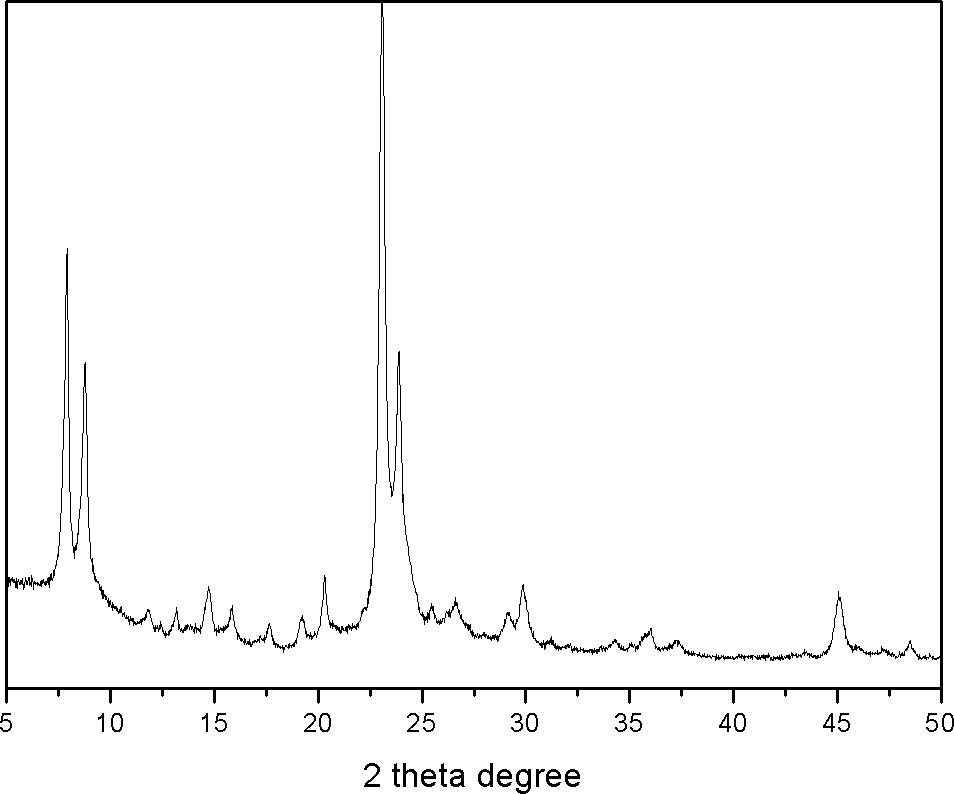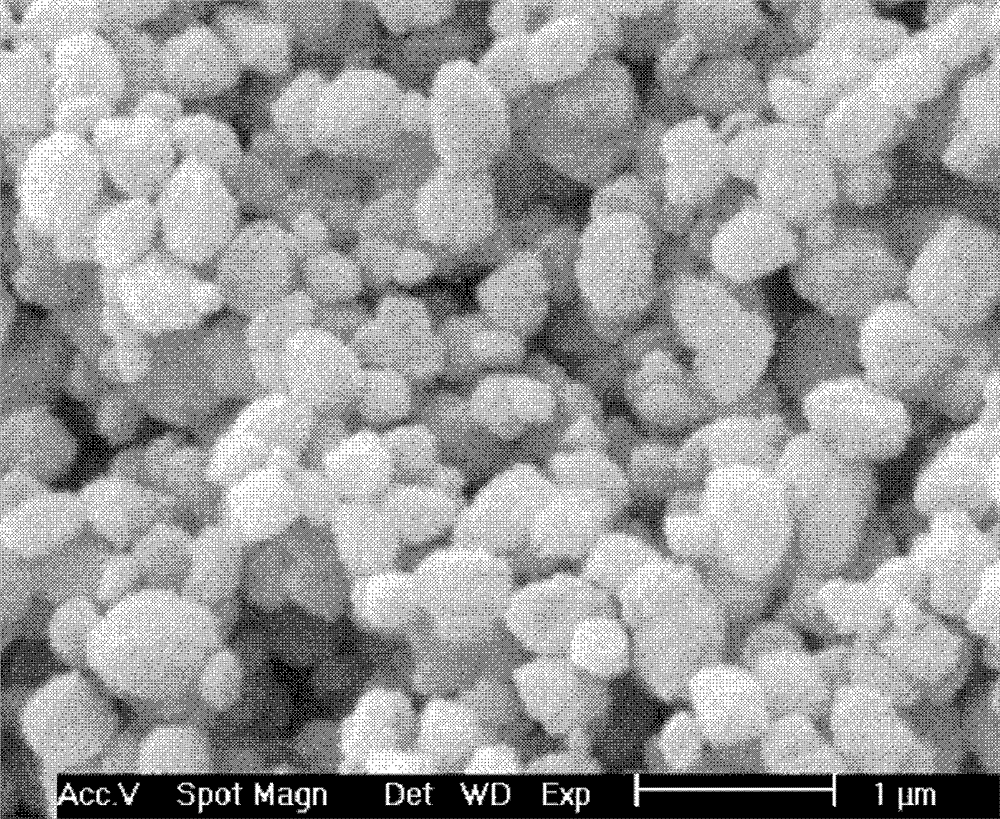Method for preparing ethylene by dehydrating ethanol
A technology for ethanol dehydration and ethylene, applied in chemical instruments and methods, hydrocarbon production from oxygen-containing organic compounds, molecular sieve catalysts, etc., can solve problems such as poor reaction stability
- Summary
- Abstract
- Description
- Claims
- Application Information
AI Technical Summary
Problems solved by technology
Method used
Image
Examples
Embodiment 1
[0025] Mix 40% silica sol, sodium metaaluminate, tetrabutylammonium bromide, potassium chloride, sodium hydroxide and water, stir for 20 minutes, then add polyethylene glycol (molecular weight is 6000), stir for 20 minutes, load Put it into a reaction kettle, and crystallize at 170°C for 1 day. The crystallized product was quenched, filtered, washed with water until the pH value was 8, and dried at 120°C for 12 hours to obtain the original ZSM-11 molecular sieve powder. The molar ratio of each raw material in the reaction mixture is: SiO 2 / Al 2 o 3 =149.3,H 2 O / SiO 2 =32.8, KCl / SiO 2 =0.6, NaOH / SiO 2 = 0.08, TBABr / SiO 2 =0.12, polyethylene glycol mass / SiO 2 Mass = 0.1.
[0026] figure 1 It is the XRD pattern of the zeolite, showing typical ZSM-11 crystal phase characteristics. figure 2 This is the SEM photograph of the zeolite, with an average grain size of 0.3 microns. The micropore volume of the zeolite is 0.12 cm 3 / g, the mesopore volume is 0.38 cm 3 / g, the ...
Embodiment 2
[0030] Mix 40% silica sol, sodium metaaluminate, tetrabutylammonium bromide, sodium chloride, sodium hydroxide and water, stir for 20 minutes, then add starch, stir for 20 minutes, put it into a reaction kettle, crystallize at 170°C 1 day. The crystallized product was quenched, filtered, washed with water until the pH value was 8, and dried at 120°C for 12 hours to obtain ZSM-11 molecular sieve raw powder with an average grain diameter of 0.5 microns. The molar ratio of each raw material in the reaction mixture is: SiO 2 / Al 2 o 3 =149.3,H 2 O / SiO 2 =32.8, NaCl / SiO 2 =0.6, NaOH / SiO 2 = 0.08, TBABr / SiO 2 =0.12, starch / SiO 2 mass=1. The parameters of the synthesized zeolite are shown in Table 1.
[0031] The synthesized ZSM-11 molecular sieve raw powder was treated with 0.3 mol / L hydrochloric acid at 80°C for 4 hours for 3 consecutive times to obtain HZSM-11.
[0032] The catalyst performance was evaluated according to the conditions of [Example 1]. The specific react...
Embodiment 3
[0034] According to the steps and conditions of [Example 2], only the mesoporous pore-forming agent is dextrin, dextrin / SiO 2 Quality = 5, SiO in the synthesis formula 2 / Al 2 o 3 =52.3, tetrabutylammonium hydroxide was used as template agent, and the crystallization temperature was 120°C for 8 days. The parameters of the synthesized zeolite are shown in Table 1. With [Example 1] ammonium exchange, drying, roasting.
[0035] The catalyst performance was evaluated according to the conditions of [Example 1]. The specific reaction conditions and results are shown in Table 2.
PUM
| Property | Measurement | Unit |
|---|---|---|
| diameter | aaaaa | aaaaa |
| particle diameter | aaaaa | aaaaa |
| pore size | aaaaa | aaaaa |
Abstract
Description
Claims
Application Information
 Login to View More
Login to View More - R&D
- Intellectual Property
- Life Sciences
- Materials
- Tech Scout
- Unparalleled Data Quality
- Higher Quality Content
- 60% Fewer Hallucinations
Browse by: Latest US Patents, China's latest patents, Technical Efficacy Thesaurus, Application Domain, Technology Topic, Popular Technical Reports.
© 2025 PatSnap. All rights reserved.Legal|Privacy policy|Modern Slavery Act Transparency Statement|Sitemap|About US| Contact US: help@patsnap.com



